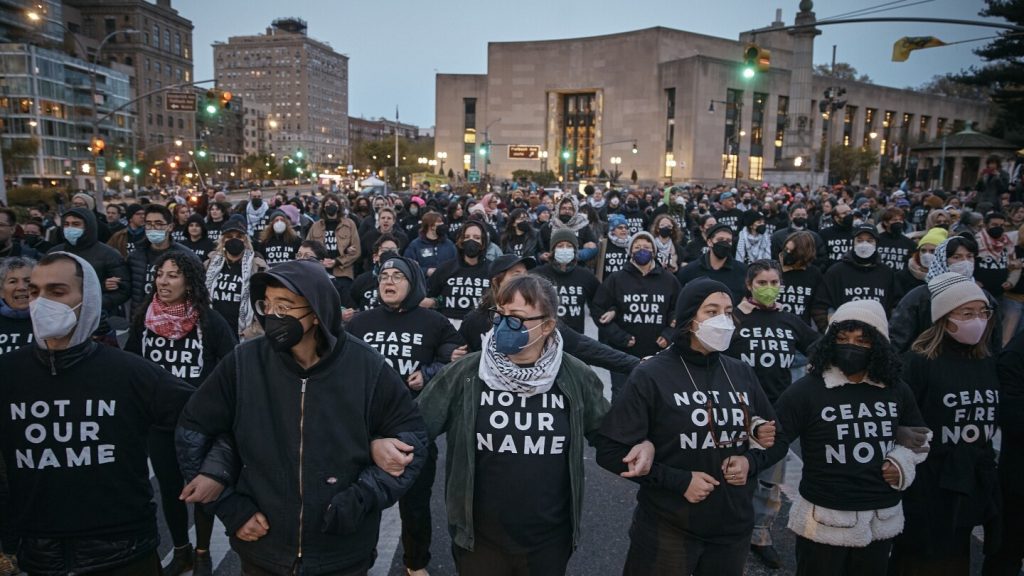Columbia University has reported progress in negotiations with pro-Palestinian student protesters who had set up a tent encampment on campus. The university extended the deadline for clearing out the encampment after student protesters committed to dismantling and removing a significant number of tents. While tensions remain high, the protesters are taking steps to ensure that only Columbia University students participate in the protest and are complying with fire department requirements. The university’s statement was released in response to intensifying demonstrations across the country over Israel’s war with Hamas, with protesters demanding that schools sever financial ties with Israel and divest from companies enabling the conflict.
In response to the protests, Columbia University President Minouche Shafik had set a deadline for reaching an agreement to clear the encampment, which was subsequently extended due to constructive dialogue. Meanwhile, demonstrations at other universities, such as California State Polytechnic University, Humboldt, have also escalated. At the University of Minnesota, Democratic U.S. Rep. Ilhan Omar attended a protest in solidarity with pro-Palestinian demonstrators, expressing support for their courage in standing against the genocide in Gaza. These protests have resulted in arrests and confrontations with law enforcement, with hundreds of protesters being detained in various locations.
The upwelling of demonstrations has left universities grappling with how to balance campus safety with free speech rights. While many universities have historically tolerated protests criticizing Israel’s actions, they are now facing increased pressure to take stronger disciplinary actions due to safety concerns and allegations of antisemitism. The protests have intensified following arrests at Columbia University, sparking a wave of demonstrations at other campuses across the country. Despite efforts by universities like Harvard to limit access to protest venues, students are demanding their voices be heard, emphasizing the importance of free expression in academic settings.
Protests have spread to campuses nationwide, with hundreds of demonstrators being arrested as they demand action against Israel’s actions in Gaza and call for divestment from companies supporting the conflict. Demonstrators are calling for greater recognition of the plight of Palestinians and an end to the violence in Gaza. As the protests continue and law enforcement intervenes to clear encampments, universities are facing criticism for their handling of the situation. The American Civil Liberties Union has emphasized the importance of protecting free speech rights on campus, urging universities not to conflate criticism of Israel with antisemitism and to avoid silencing political views they oppose.
As tensions escalate on campuses across the country, universities are being forced to navigate complex terrain in balancing the rights of protesters with concerns for safety and potential incidents of hate speech. The protests highlight deep divisions and strong emotions surrounding the Israel-Hamas conflict, with students and activists calling for justice, peace, and coexistence. As the situation unfolds, universities are under pressure to address the underlying issues fueling the demonstrations and to find a path forward that respects diverse perspectives while ensuring a safe and inclusive campus environment for all students.


